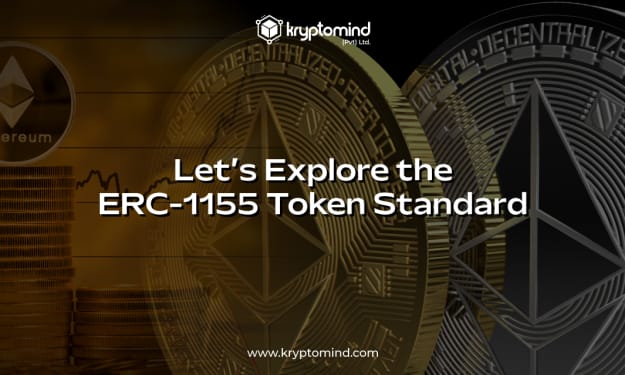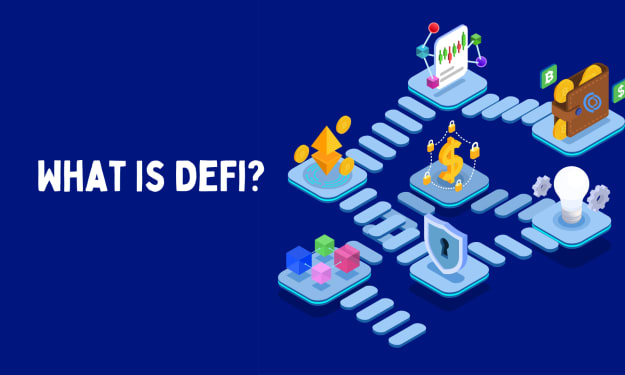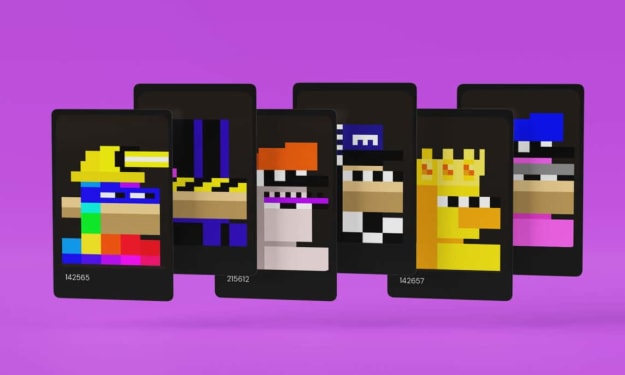New Ethereum Token Standard ERC-4907?
An exciting concept in the world of NFTs is rentable NFTs. According to ERC-4907, an NFT owner may provide permission to a third party to use NFTs...

As technology continuously evolves, a new concept is introduced every day. An exciting concept in the world of NFTs is rentable NFTs. According to ERC-4907, an NFT owner may provide permission to a third party to use their NFT for a certain amount of time. The user will lose access to the NFT after that period is over.
P2E video games are still a relatively recent trend in both gaming and cryptocurrency. Despite this, the sector has tremendous development potential since it successfully combines two things that everyone wants: money and fun.
Entry into the P2E market has been increasingly simpler with the continued growth of NFT rental services. They allow gamers to rent an NFT without conditions and pay lenders a percentage of their profits. In turn, owners of non-fungibles have the opportunity to earn additional passive income.
What Are NFT Rentals?
NFT Rentals operates similarly to other rentals in the real world. Let’s say you desire a premium automobile for a few days. The most economical option is to hire a car for the necessary number of days and return it without fail to the owner when your rental period is up rather than purchasing a new vehicle. Like renting a car for a few days, the goal is to return the NFT to its rightful owner when your rental term is up.
The Importance Of NFT Renting
There are several advantages to renting to NFTs, and they can have a wide range of utilities.
Both owners and tenants gain from NFT rentals. The renter offers a chance to interact with the NFT community or utilize an NFT’s service that they otherwise wouldn’t be able to afford, even temporarily. The owner can monetize their NFT and get passive revenue from a static asset that would otherwise gather virtual dust in their digital wallets. These advantages of NFTs renting in the gaming industry are unquestionably beneficial to casual and high-net-worth players.
NFT rentals have enormous potential. You may rent digital artwork, metaverse territory, and many gaming materials. With the widespread adoption of blockchain games, guilds, and metaverse in the upcoming years, the NFT rental industry will prosper. As a result, users, guilds, and projects will hold vast quantities of idle NFTs. To lower the cost of participation and encourage continued usage among current users through rental income, it is essential to maintain a thriving rental market.
Current NFT Rental Methods
NFTs may now be rented out in one of two ways:
- Collateralized Renting
- Collateral-free Renting
In both cases, the owner will provide the user access to the NFT in exchange for a security deposit or other agreement to return the NFT to the owner when the rental time is over. Once rented out, the original owner loses control of the NFT, which raises several dangers. Additionally, the owner must manually retrieve their item when the rental period is up, which is a complex and expensive operation, especially when renting many assets concurrently.
The separation of the roles of owner and renter with an expiration date made possible by the introduction of ERC-4907 implies that the privileges of the leaseholder expire automatically without the need for any further on-chain actions.
NFT Rental Dual Role Standard ERC-4907
By differentiating who is the owner and who is the user of the NFT, ERC-4907 introduces a new position and makes it feasible to “rent” the NFT. The renter can use the NFT up to the end of the loan period, at which point it immediately reverts to its owner.
The ERC-4907 standard, which adds the dual roles of “owner” and “user” at its application layer, expands ERC-721. Through an automatic “expires” feature that enforces the user’s time-limited role, ERC-4907 optimizes NFT rentals. This ground-breaking feature makes NFTs rentable by default and prevents yet another on-chain transaction by removing the need for owners to withdraw user rights actively.
It is simple to implement ERC-4907 by adding a small amount of code. The ecosystem for NFTs may develop and innovate more quickly if this paradigm becomes the norm.
The Protocol Offers:
Simple implementation: Backwards compatibility and easy to implement.
Functions for the NFT: It is much simpler to control what lenders and borrowers can and cannot do with the NFT when there are separate “owner” and “user” roles.
On-chain time management (expires): After the rental period has expired, the “user” of NFT is immediately revoked.
Simple Third-Party Integration: The NFT owner may rent the NFT to some users and simultaneously utilize the NFT in a mortgage platform. The “user” role of the NFT is used in renting, whereas the “owner” role is used in mortgages.
Increasing access to NFT: Renters can use the NFT but cannot transfer it or alter its user-ship, which is automatically revoked upon expiration; hence renting an ERC-4907 NFT does not need OC or any collateral at all. This increases the options for people to rent NFTs and use them.
Increasing market liquidity: As The Metaverse and Web3 grow, more and more individuals will choose to rent NFTs to enjoy their advantages, including those who cannot afford to buy in-game items or virtual property or who do not choose to do so. Over time, this will significantly enhance NFT market liquidity.
Conclusion
We discussed the NFT Rental Standard ERC-4907, its operation, and the rationale for the renting system. An essential standard known as ERC-4907 does away with the requirement for collateral when lending and borrowing NFTs. NFT owners, buyers, markets, and artists will access safer and more profitable opportunities if it becomes accepted as the norm for NFT production and programming.





Comments
There are no comments for this story
Be the first to respond and start the conversation.